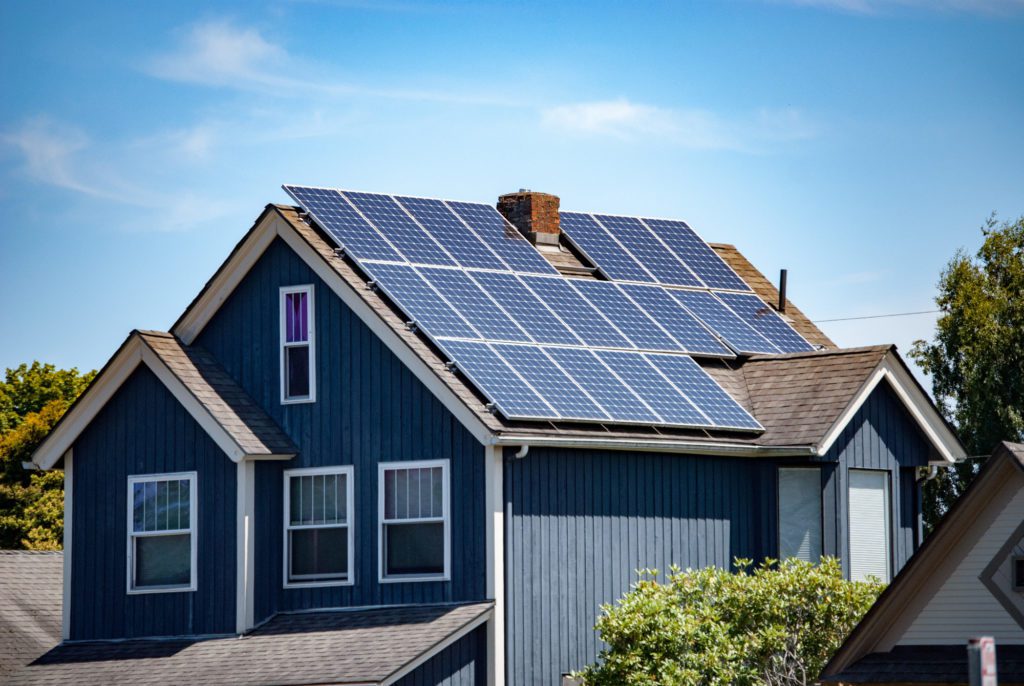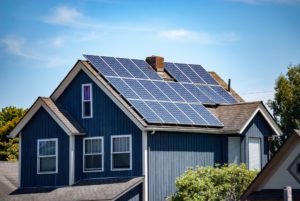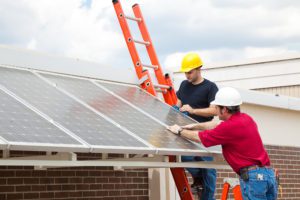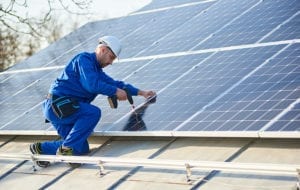
Is Switching to Solar Worth It?
In recent years, solar technology has grown exponentially and will likely make up for the majority of our energy in the coming decades. However, today, there are enough solar panels in the US to power up to 18 million homes.
Luckily, if you want to get ahead, you can make the switch today. You probably know some people who already have, and you may still have some questions about the process. Well, we’re here to clear that up. Let’s talk about switching to solar.
Benefits of Switching to Solar
Before we find out if switching to solar is worth it, we should first discuss the pros and cons of switching and see how they play out. While there are many benefits of switching to solar energy, here are some of the most important examples.
Solar Affordability
It used to be the case that solar panels would cost as much as $70,000 to install on your home, and you had to pay it all upfront. Luckily, times have changed. Now, nearly any homeowner can afford the cost of solar panels for their homes.

The new norm in the industry is by paying in installments that replicate the offset energy from your utility bill. So, if your normal electric bill is $200 and your solar panels offset an average of $110 worth of electricity, then your monthly payment would be $110.
However, that isn’t the only payment plan available. You can choose custom installment payments or pay upfront if you prefer to get the bill out of the way and start saving. It’s entirely up to you!
Solar Tax Incentives
Next, we have the tax benefits of using solar offsets, and they are quite substantial. As of now, the federal government offers a 26% tax reimbursement for the cost of solar panel installation, which is already an enormous offset.
Although, it doesn’t stop there. Most states offer some type of additional incentives, and they change periodically. Check out the Database for State Incentives for Renewable Energy (DSIRE) for more information on how you can save.
Keep in mind, these incentives aren’t going to last forever, and many of them are set to expire in the coming years. The sooner you get your solar panels installed, the more you’re likely to save on taxes.
Energy Independence From Solar
Have you ever thought about living off-grid? Do you want to retire in your current home? Well, solar panels are a great step toward energy independence.
Of course, depending on where you live, solar panels can’t offset 100% of your electricity, especially at night. However, if you decide to add enough solar batteries to power your home, you could go entirely off-grid if your home receives enough sunlight.

Either way, if you retire in 10, 20, or 30 years and intend to live in your current home, offsetting your energy costs is a great way to reduce your monthly expenses and stretch your retirement funds. Energy costs are rising all around the country, so solar is a great way to protect yourself into your golden years.
Even if you don’t plan to retire in your current home, solar panels are still a great investment. Here’s why.
ROI on Solar Installation
Compared to other home upgrades and renovations, adding solar panels to your home offers a high return on investment (ROI). When you factor in the tax savings upon installation and the ongoing energy savings, the ROI is difficult to match.

So, how much can you expect your home value to increase? Well, solar panels are known to increase home value by up to $6,000 for each kilowatt of panels installed, averaging around a 4.1% increase to your home’s value.
Conversely, if your home is worth $400,000, that’s an average increase of over $16,400 just by adding solar panels with all of the tax and energy offsets included.
Reduced Carbon Footprint
As you likely already know, the world is heading toward a precipice. The latest IPCC report showed how close we are to terminal disaster, and we all need to work together to dramatically reduce our carbon footprints in the coming years or face terminal disaster.

Of course, most of us are looking for ways to reduce our emissions, but there aren’t many solutions that don’t require institutional change.
Electric vehicles get all of the attention, but your home emits far more greenhouse gases than your car on average. Also, if you have an EV already, you’re not saving any emissions if your energy comes from a fossil fuel-powered energy grid.
Solar panels are an excellent way to reduce your emissions and protect the environment, as they don’t pose any threats to wildlife. When combined with new windows and an upgraded heating system, you will dramatically reduce your carbon footprint.
What Else?
Solar panels come with no noise, no bulky equipment, little maintenance (once every year or two), and no damage to your roof. Solar panels even add a protective layer to your roof from harsh weather elements, which can extend the life of your roof.
Consequently, solar panels add a more modern look to a home. Your house could be the talk of the neighborhood, and you may even inspire others in your local community to follow suit, leading to a healthier environment for everybody.
Also, there’s no additional risk of injury if your panels are on your roof. You can always call your solar company for maintenance or repairs as necessary, so there is no need for you to worry about accidents. If they are on the ground, they could pose a tripping hazard, but that’s unlikely to be a problem.
Moreover, solar panels work with most existing electrical systems. However, some will need an upgrade. It’s best to have your current system inspected to see if it’s compatible, which most solar companies will do for free!
Downsides of Switching to Solar
Of course, all good things come at a cost, right? Well, not much of one.
Honestly, there aren’t many downsides to switching, but it does depend on your situation and needs. Of course, paying for the panels upfront is a drag, but the cost is marked down significantly by tax incentives.

Also, you may worry about the debt hanging over your head if you choose to make small installment payments over time. However, they won’t add anything to your current monthly expenses, so you won’t even notice it.
Another downside is that you can’t take the solar panels with you when you move. If you plan to move within the next few years, then upgrading may not be in your best interest. Although, the extra cash from your home sale will certainly make up for it!
No matter what your payment plan is, solar panels are still rather expensive, which means it can take time for the investment to pay for itself. However, understanding the cost of solar panels is important, as they often vary widely.
Other than that, switching to solar doesn’t have many downsides. If you live in New England, your energy offsets will certainly be less dramatic than if you lived in Southern California, but they will still be significant, even on cloudy days.
Is Switching to Solar Worth It?
Overall, yes. Switching to solar offers far too many benefits and only a few small downsides. For the average home, an upgrade to solar energy could save homeowners substantial money on their monthly expenses.
Solar panels add both style and function to any home, and they are finally accessible to the majority of homeowners across the country.
As of now, solar is the most accessible way to upgrade your energy system and save money on your energy bill. It’s a lot harder to turn your backyard into a wind farm, so if you’re looking to save money on electricity, become energy independent, and reduce your carbon emissions, then solar panels are right for you.
Yes, the upfront investment is costly in certain situations, which is why there are options for payments. All in all, if you won’t be spending extra money every month, you’ll save money in the long run, and increase your home value, then why wouldn’t you want to switch?
Switch and Save Today!
Now that you know what switching to solar can do for your home, there’s no time like the present to get a quote. Not all homes are compatible with solar, but the ones that are will save a fortune. Stay up to date with our latest home improvement news, and feel free to contact us with any questions!



Leave a Reply